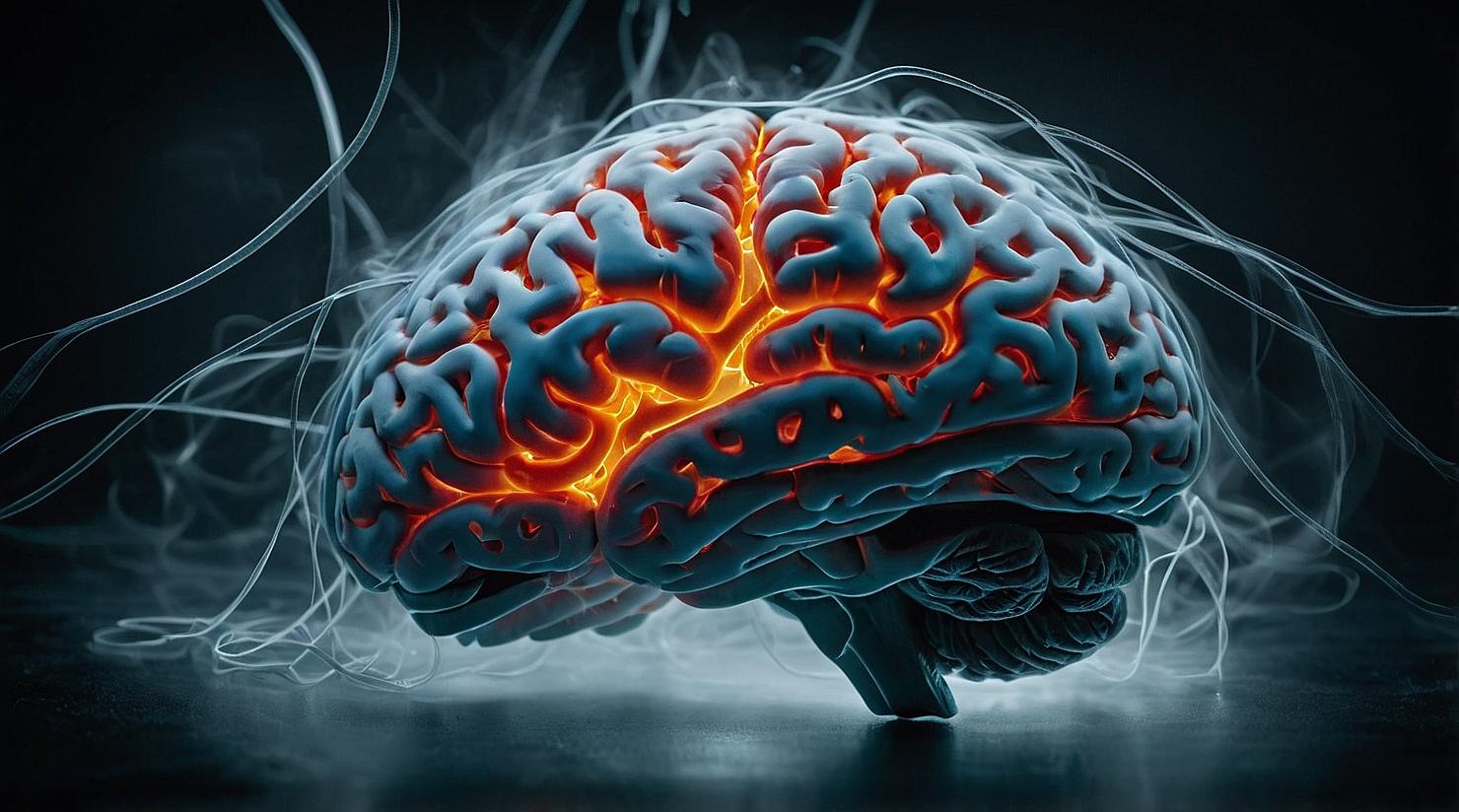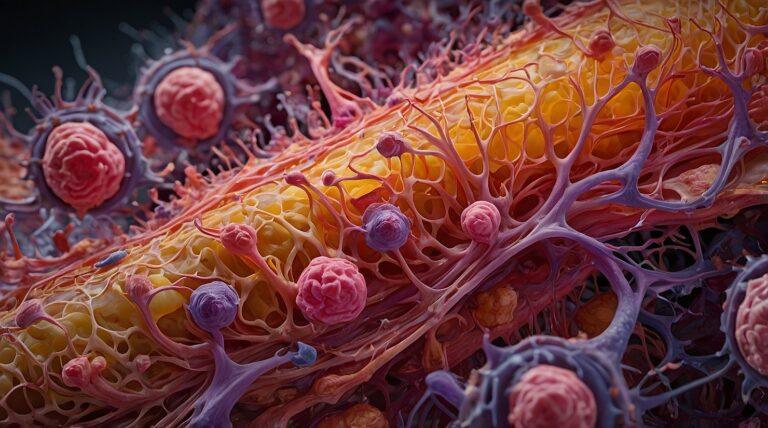Keto Brain Fog After Menopause: Boost Cognitive Clarity with These Diet Strategies

Introduction
Menopause marks a significant transition in a woman’s life, often bringing a myriad of changes, including cognitive challenges like brain fog, memory lapses, and difficulty concentrating.
These changes, though common, can feel frustrating and impactful on daily life. Meanwhile, the ketogenic diet has gained attention for its potential benefits for brain health and clarity, making it increasingly relevant for women navigating post-menopausal cognitive shifts.
This article explores the intricate link between menopause, brain fog, and the ketogenic diet.
By understanding how hormonal changes influence cognitive function and how specific dietary strategies can support mental clarity, women can take actionable steps to mitigate brain fog and enhance their overall quality of life.
Understanding Hormonal Changes and Cognitive Function
Hormonal shifts during menopause are at the root of many cognitive changes experienced by women. Estrogen and progesterone, two key hormones that decline significantly during menopause, play critical roles in maintaining brain health and clarity.
Estrogen, in particular, supports neurotransmitter activity and brain energy metabolism, helping regulate mood, memory, and cognitive function.
When estrogen levels drop, women may experience symptoms such as brain fog, emotional instability, and physical fatigue. These changes are directly tied to the brain’s reduced ability to process energy efficiently, leading to slower mental processing and lapses in focus.
The brain’s delicate balance is further disrupted by changes in stress hormones, contributing to an overall sense of cognitive sluggishness.
Understanding the connection between hormonal health and brain function is crucial. It not only explains the cognitive challenges associated with menopause but also provides a foundation for addressing them through strategic lifestyle and dietary choices.
How the Keto Diet Impacts Cognitive Clarity in Menopause
The ketogenic diet, which focuses on high-fat, moderate-protein, and low-carbohydrate intake, triggers a metabolic state known as ketosis. During ketosis, the body shifts from using glucose to ketones—byproducts of fat metabolism—as its primary source of energy.
These ketones serve as an efficient and steady fuel source for the brain, which may support improved cognitive function over time.
When beginning a keto diet, some people may experience a temporary phase of “keto flu,” which can include symptoms like fatigue, brain fog, or irritability.
These effects are often tied to electrolyte imbalances and the body’s adjustment to burning fat for energy instead of carbohydrates. However, with time and proper dietary adjustments, most individuals report benefits such as enhanced mental clarity, improved focus, and better memory.
For women experiencing menopause-related brain fog, ketones may provide a critical energy source for the brain, bypassing some of the hormonal challenges that disrupt glucose metabolism.
By stabilizing energy levels and reducing inflammation, a well-structured keto diet can offer long-term cognitive support.
Common Cognitive Challenges During Menopause
Menopause brings a variety of cognitive symptoms that are commonly referred to as brain fog. These include memory lapses (forgetting words or details), slower information processing, and difficulty making decisions.
These challenges can be further compounded by physical symptoms of menopause such as fatigue, poor sleep, and fluctuating energy levels.
Emotional impacts such as mood swings, increased anxiety, and irritability can also exacerbate mental fog. The combination of emotional and cognitive changes can create a sense of mental overload, leaving women feeling overwhelmed and unable to function at full capacity.
Recognizing these challenges is the first step toward finding effective strategies for managing them.
Beyond cognitive symptoms, many menopausal women find that lifestyle factors, such as poor sleep quality or high stress levels, perpetuate mental fatigue. Addressing these root causes is essential for achieving improved mental clarity and balance.
Dietary Adaptations for Menopausal Brain Health
Specific Nutrients for Cognitive Support
Certain nutrients are particularly beneficial for supporting brain health during menopause. Omega-3 fatty acids, found in fatty fish like salmon and walnuts, are known for their anti-inflammatory properties and ability to promote brain health.
Choline-rich foods, such as eggs, support neurotransmitter function and memory.
Antioxidants and phytonutrients, present in berries, leafy greens, and cruciferous vegetables, help combat oxidative stress—a contributor to cognitive decline.
Additionally, nutrients like magnesium, vitamin D, and B vitamins play a role in energy metabolism and hormonal balance, further supporting brain function.
Structuring Meals for Brain Optimization
Designing meals to optimize mental clarity involves balancing macronutrients to sustain steady energy levels. On a keto diet, this means focusing on healthy fats, moderate amounts of protein, and minimal carbohydrates.
Foods like avocados, olive oil, nuts, seeds, and grass-fed butter are excellent fat sources for ketosis and brain health.
Timing meals can also make a difference. Many women report improved focus when they align meals with their daily energy demands, such as consuming a nutrient-dense breakfast to jumpstart the day and prioritizing lighter evening meals for better digestion and sleep.
Supplements to Consider
Beyond whole foods, certain supplements can enhance a ketogenic approach to tackling menopausal brain fog. MCT oil, derived from coconut oil, provides an immediate source of ketones for energy.
Exogenous ketones are another option to help achieve ketosis faster and stabilize cognitive energy.
Electrolytes like sodium, magnesium, and potassium are essential for avoiding imbalances and reducing the symptoms of keto flu. Adaptogenic herbs such as ashwagandha may also aid in managing stress and improving cognitive resilience.
Practical Solutions for Managing Brain Fog
Meal Planning and Preparation
Batch-cooking keto-friendly meals can be a major time saver and help prevent decision fatigue. Incorporating brain-boosting foods like fatty fish, cruciferous vegetables, and low-sugar berries into your meal prep ensures consistent nutrient intake to support mental clarity.
Having simple, ready-to-eat snacks like nuts, boiled eggs, or pre-packaged keto bars on hand can also help sustain energy throughout the day, especially during busy periods that demand focus and multitasking.
Lifestyle Adjustments
Regular physical activity, such as walking, yoga, or strength training, is critical for hormonal balance and cognitive health. Exercise boosts blood flow to the brain and encourages the release of endorphins, which help regulate mood and energy.
Stress management is equally important. Incorporating mindfulness practices like meditation, deep breathing, or journaling can foster a sense of calm and mental focus. Finally, prioritizing high-quality sleep is essential.
Strategies like creating a consistent bedtime routine, limiting caffeine intake, and optimizing your sleeping environment can all contribute to better rest and reduced brain fog.
Hydration and Electrolyte Balance
Hydration is a cornerstone of brain health, and electrolyte balance is particularly important during ketosis. Drinking sufficient water throughout the day is key, as is consuming foods or drinks rich in electrolytes, such as bone broth or beverages with added minerals.
For women on keto, adding Himalayan pink salt, magnesium supplements, and potassium-rich foods can help maintain electrolyte levels and reduce fatigue and sluggishness.
Tracking Progress
Monitoring your cognitive health can provide valuable insights into what works best for your unique needs. Keeping a symptom journal or using a tracking app can help you identify patterns related to diet, sleep, stress, and energy levels.
With this data, you can make informed adjustments to your nutrition and lifestyle strategies.
Success Strategies for Long-Term Brain Health
Weekly Preparation Tips
Preparing ahead can make maintaining a brain-healthy keto lifestyle much easier. Plan your meals and snacks for the week to reduce decision fatigue and minimize the chances of falling off track. Keep your grocery list focused on keto-friendly staples like fatty fish, nuts, eggs, and antioxidant-rich produce.
Mindfulness and Stress Reduction Techniques
Mindfulness practices not only support stress reduction but also improve focus and emotional regulation. Simple techniques like deep breathing, meditation, or reflective journaling can have a positive impact on cognitive clarity while helping manage the emotional aspects of menopause.
Monitoring and When to Seek Professional Help
While many women find relief through dietary and lifestyle changes, persistent or severe brain fog may require professional intervention.
If cognitive challenges interfere significantly with your daily life, consult with a healthcare provider or nutritionist to explore personalized strategies or rule out underlying conditions.
Conclusion
Managing brain fog after menopause doesn’t have to feel overwhelming. By embracing a ketogenic diet, supplementing with key nutrients, and adopting healthy lifestyle practices, many women can experience meaningful improvements in cognitive clarity and energy.
Small, consistent adjustments tailored to your body’s needs can make a significant impact over time.
Above all, it’s important to remain patient and optimistic. Menopause is a natural phase of life, and with the right strategies in place, you can navigate its challenges with confidence and resilience.






